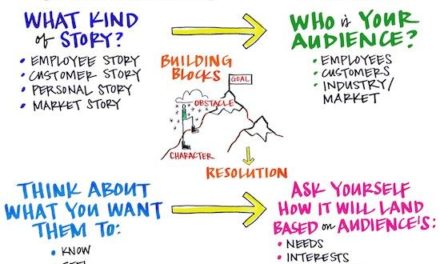
After AfCFTA, Africa could provide excellent opportunities for industrial growth if challenges are addressed – report

Industrials are braced for yet another revolution, according to the latest research from leading global law firm Baker McKenzie. Back to the future: Why the lure of the past could jeopardize the future for Industrials shows that at the beginning of a new decade, the sector is experiencing disruption at scale, from technology and trade to skills and sustainability.
While many of these market shifts are having a positive impact, placing Industrial companies at the forefront of dynamic developments and exciting innovations, leaders of the largest Industrial companies are concerned about maintaining and protecting business performance.
Baker McKenzie worked with an independent market research partner to compile this research. They conducted 700 interviews with chief executives, chief strategy officers and company directors leading multinationals in the automotive, aviation & aerospace, chemicals, construction & engineering, manufacturing and transportation sectors. These organizations turnover between US$1 billion-US$499 billion annually – encompassing the largest global industrials.
The research found that captains of industry remain reliant on the strategies that have delivered in the past, rather than pursuing future-facing routes to success – taking comfort in the familiar and looking ‘back to the future’ for reassurance on performance, as Nikolaus Reinhuber, Global Chair of Baker McKenzie’s Industrials, Manufacturing and Transportation (IMT) industry group explains,
“The imperative to build new revenue streams is a careful balancing act for Industrials. Innovation for the sake of innovation risks losing sight of commercial reality, going too far, too soon and leaving key stakeholders behind. But retreating into the ‘known’ approaches of the past also presents a threat to performance, failing to evolve and meet the changing demands of customers, regulators and shareholders is not a viable option. How companies tread the line between aspiration and action is perhaps the most important issue Industrials must address in the coming years.”
Despite unique challenges, Industrials have a significant opportunity to thrive in the future. The Baker McKenzie Industrial Change Barometer, an assessment of Industrials’ readiness for change, highlights both pockets of excellence and urgent areas to address.
In Africa, the implementation of the African Continental Free Trade Area Agreement (AfCFTA) could provide excellent opportunities for Industrials to grow in new, streamlined markets in years to come, but the continent also has urgent challenges to address first, including legislative uncertainty, vast infrastructure gaps and a lack of required skills.
Performance threat: Industrials reluctant to abandon past strategies and embrace technology
Baker McKenzie’s barometer shows that the pace, scale and complexity of market change is placing future growth at risk, according to 79% of leaders. While financial performance in the Industrial sector today is buoyant – an overwhelming majority (87%) of companies in the sector saw revenue rise last year – two thirds (66%) of Industrial leaders admit that managing disruption from technology, trade, sustainability and skills comes at huge cost to business, and could jeopardize future growth.
The urgent need to develop new services to replace obsolete ones is also a concern for up to 61% of Industrials.
Baker McKenzie Corporate Partner Jannan Crozier said that, “Industrials must look forward, and become adept at deciphering innovation hype from commercial gold. Organisations in the sector urgently require actionable technology, bold strategies and digital talent to accelerate future performance. The current boom in technology-focused M&A is testament to this race among traditional Industrials to acquire the platforms and people needed for success.”
The survey also shows that the largest companies in the industry are most likely to take transformational action (45%) – reflective of the scale of the task to pivot long-standing infrastructure and operations.
While many Industrials remain focused on digitizing operations and interactions for the sake of efficiency, a significant number are also considering how they can integrate revenue-generating technology into their business faster – digitizing existing products and services, restructuring portfolios to free up investment, and acquiring mid-market innovators and minority stakes in start-up disruptors.
“Making transformation happen is the most challenging part of the journey Industrials are undertaking. While vision and culture are critically important and a lack of positive agreement in these areas continues to block change for many, making decisive investments, taking action and seeing strategy through will be the difference between surviving and thriving. But delivering change in today’s disruptive environment requires new systems that may feel alien. For example, consolidating innovation efforts through cooperative working groups outside the organization or industry, and pooling talent and resources into these networks to speed up time to market,” Nikolaus Reinhuber added.
“In order to foster economic growth and increase employment in Africa, industrial growth has been prioritised across the continent. Countries in the region must develop crucial infrastructure and skills necessary to be able to implement advancements in technology and be ready for the movement to digitisation, the decarbonisation agenda and automation. African ICT, in general, remains under-developed due to poor access to electricity, infrastructure and low broadband penetration. Efficient ICT infrastructure is the backbone of the digital economy and necessary for the future of the Industrial sector. Further, African governments must ensure they have the required workforce that is skilled in the right areas, as opposed to citizens that are skilled in operations that are unlikely to last,” said Marc Yudaken, Partner and Head of the IMT industry group at Baker McKenzie in Johannesburg.
The trade barriers that are holding back transformation
According to Baker McKenzie, almost three quarters (72%) of leaders agree that the legacy footprint of their company is leaving them exposed to trade volatility. Faced with significant disruption to trading relationships, supply chain partnerships and access to raw materials, Industrials’ wide international reach now means greater complexity.
As new trade barriers appear overnight and protectionist trade philosophy and policy prevails, it is increasingly difficult for Industrials to take a long-term view on the location of their operations and supply chains, according to the Firm. However, just because organizations may be exposed by their presence in a particular market, doesn’t mean they can’t afford to be there. It is critical to the future performance of Industrials that they find new ways to navigate these issues.
To get ahead of trade disruption, Industrials are looking at factors within their control that can insulate their organizations from increasing trade risk. The supply chain is a particular focus for companies in this volatile environment – over half of Industrials surveyed by Baker McKenzie are actively seeking to identify new partners, renegotiate with existing suppliers and digitize wherever possible.
“There is an opportunity now for Industrials to review their operations and partnerships through the lens of trade volatility, environmental and labor considerations, and make proactive change,” according to Mattias Hedwall, Global Chair of Baker McKenzie’s International Commercial & Trade group. “But a holistic perspective is essential. Shifting manufacturing to a lower cost jurisdiction may seem like a smart move. But rapidly evolving regulation makes this calculus more complex – particularly given the global imperative to raise compliance and governance standards in relation to sustainability. Cost-centered decisions made based on a narrow view of today’s trade environment may quickly become incompatible with growth,” he continued.
“Where there are tendencies in some parts of the world to build barriers to trade, AfCFTA provides a unique opportunity for African nations to work together and present a streamlined investment environment for the global Industrial sector. AfCFTA will, according to the African Union’s new Chair President Cyril Ramaphosa, enable the continent to work together, reignite industrialization and pave the way for the continent’s integration into the global economy. But while AfCFTA is set to help address Africa’s industrial deficit, there a number of obstacles that must first be overcome, including a lack of cohesive and reliable infrastructure, unreliable sources for water and electricity, and political instability and policy concerns.”
“To spur industrial growth across Africa, the continent first needs legislative reforms that encourage foreign investment and boost infrastructure development. Legal certainty allows potential investors to assess opportunities and risks on a commercial basis, which is essential for drawing in the capital Africa desperately needs to develop the infrastructure and deliver on the continent’s industrial growth potential,” explained Yudaken.
Drive for sustainability means a changing marketplace
Baker McKenzie’s survey showed that Industrials are primarily looking inward to manage disruption resulting from new sustainability directives and demand – creating internal awareness programs and embedding sustainability into corporate strategy and compliance. But as global policy on ESG is formalized, Industrials must ramp up efforts to reduce environmental impact.
“As disruptive market forces steer companies to a ‘stakeholder capitalism’ model, which allows for a wider definition of corporate governance and purpose including both profit and planet, there is growing pressure on Industrials to lead and deliver on sustainability,” said Climate Change Partner John Watson.
“Investors, dealmakers, customers and employees are becoming more demanding of Industrials, as sustainability plays a greater role in decisions to invest in, buy from and work for organizations. But more than reputation, new ESG standards will soon formalize policy in this area – increasing regulatory mandates, shifting from voluntary to legal requirements and raising the bar for compliance,” he added.












































